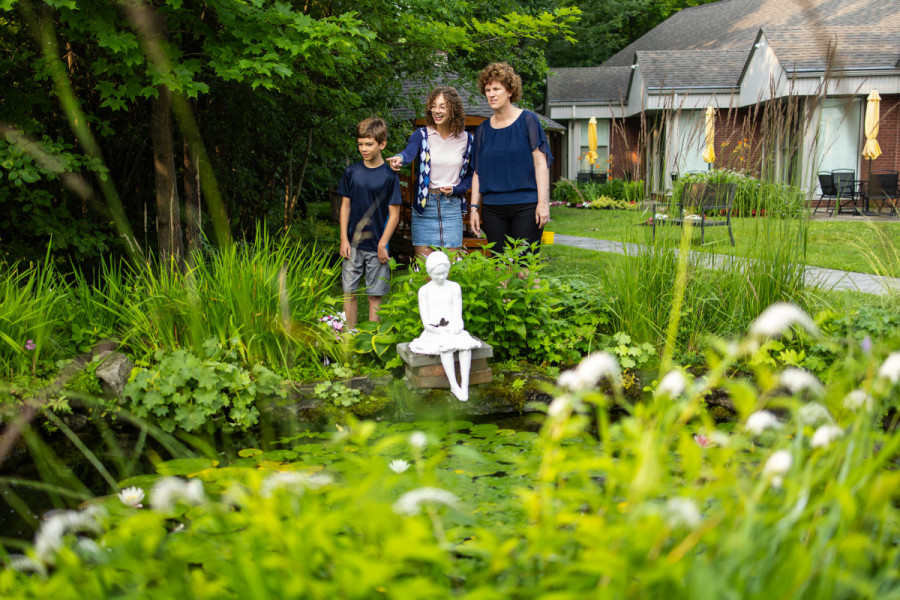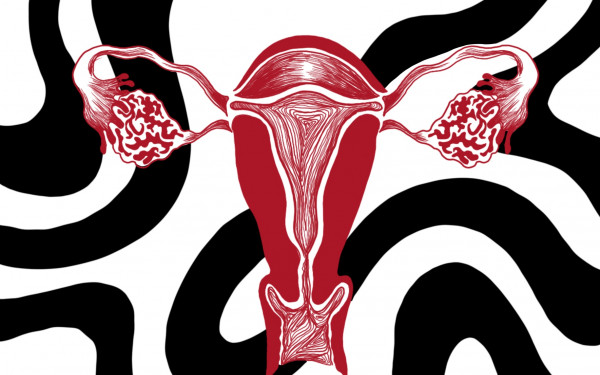Demystifying palliative care
The Teresa Dellar palliative care residence, a place to make peace with the great unknown
Inside a palliative care residence, Laurence Najar speaks with her mother Marguerite, allowing her to share feelings and words they'd never exchanged before; unusual given that her mother is in an irreversible coma, but not unusual for the Teresa Dellar palliative care residence.
The residence fosters an essence of home, as families are gathered, laughing and chatting in cozy living rooms. The residence mirrors that of an ecosystem where everyone, including the patients and their loved ones, come together to make a plan that suits them best.
Palliative care is a medical discipline aimed at improving the quality of life for patients with serious–often terminal– illnesses. It primarily addresses pain management, symptom control, and emotional and spiritual support. According to the World Health Organization, most adults in need of palliative care have chronic diseases such as cardiovascular diseases, cancer, chronic respiratory diseases, but also kidney failure or dementia.
Even if palliative care is a crucial part of integrated, people-centered health services, it stands out from other medical services. Unlike traditional medical care, which typically aims to restore health, palliative care stands as a unique branch where patients are admitted with the understanding that their condition is irreversible and that their health will not advance but deteriorate.
“You enter a unique type of service, where well-being and joy are, surprisingly, everywhere. Hospitals are usually clinical, cold and gloomy places, palliative care is different,” said Laurence Najar, talking about the residence where her mother, Marguerite Najar, who underwent palliative care last November.
Najar’s mother suffered a stroke in 2016 and another in 2022. She was left severely disabled. Her condition worsened, and her electroencephalogram revealed substantial brain damage. She lost consciousness permanently and lost the ability to speak or move again. Her doctors declared her brain dead, and they decided that transitioning her into palliative care was the most compassionate choice for her and her family.
Because palliative illnesses are incurable, end-of-life care can be associated with suffering, dread and loss. For Dale Weil, executive director of the Teresa Dellar residence, it's the opposite: “People don't come here to die, they come here to live until they die, and our job is to make their life as good as possible based on what’s important for them.”
At the palliative care residence, the staff doesn’t just look after patients, they also give families the essential support they need during tough times. Given the limited time remaining for their loved ones, families find themselves spending significant portions of their weeks at the residence. The residence focuses on establishing a sanctuary where families feel safe and places significant emphasis on supporting them as they navigate their loved one's final moments.
“We’re dealing with death and dying all the time, but we’re also dealing with living to the fullest. I think it's a privilege to be able to help people at this time of their lives and make the grieving that goes on for those who stay afterward, easier,” Weil said.
Detail is key in palliative care. The staff takes the time to get to know the person they're aiding. It's not just about their medical needs but about who they are, what they love and who matters most to them. Cooks at the residence go to great lengths discovering the meals patients enjoyed during their childhood or the flavours of their home country. Caregivers even inquire about the specific laundry detergent used at their patient’s homes to ensure that the sheets and clothing carry a familiar comforting scent.
Hospice caregivers are committed to upholding the dignity of patients, especially during their final days. Najar was surprised when she walked in on a nurse having a full-on conversation with her comatose mother.
“[The staff would] explain the procedures and what they were doing, almost as if they expected a response,” Najar said. “It seemed a bit unusual and I wanted to tell them that it was pointless. I was both impressed and also knew that there might not be much hope left. Still, it was clear that they believed in preserving the patients' dignity right to the very end.”
During her mother’s time in palliative care, Najar recalled that her connection with her mother deepened despite her unchanging condition. She explained how palliative care forced her to think about what actually matters.
“Everything is exacerbated because time is no longer a luxury we can afford. I had never taken the time to cut ties with the world and with my daily obligations to actually spend time with someone I love,” Najar said. “It was an incredible moment to reconnect with my mother and my siblings. It had been forever, perhaps the first time. We were here with her, sad, happy, we reminisced about a life well lived.”
It was also a moment where Najar was able to truly talk to her mother, and tell her things she never was able to before. “It's a deeply personal and liberating moment, where your connection with the other person isn't influenced by political, social, emotional or cultural factors,” she said.
Dealing with death takes a toll on families, but also on hospice workers, who deal with it on a daily basis. Because the attention put into caring for these patients and families is so consummately professional, it can be easy to forget the tremendous psychological and emotional burden that goes with being a hospice nurse.
Hospice workers do not remain immune to the toll of encountering death. According to Carey Andrian, a professor at the University of Colorado School of Medicine, healthcare providers in end-of-life care often have profound, emotionally challenging interactions with dying patients and their families. This can lead to burnout, or make it difficult for workers to address the emotional and existential needs of the patient.
“We work hard to be able to support our team and the losses they experience. It's important that our team be able to express when they are having a difficult day,” Weil said.
Even if there are trying times, Maya Yeboah, a nurse at the residence, believes that this role requires individuals with a specific level of expertise to ensure the comfort of those under their care.
“It’s knowing that you won’t be back, knowing that you're leaving people behind. Leaving carriers, leaving goals behind. It's a very particular moment,” Yeboah said. “So we’re meeting these individuals at a time where they’re overwhelmed. It's a privilege to be able to accompany patients at the end of their life.”.
For Weil, hospice care embodies a collaborative commitment to caring for patients, their families, and the staff involved.
“It most likely doesn't add days to [your] life, but it most certainly does add life to [your] days,” Weil said.
This article originally appeared in Volume 44, Issue 5, published October 31, 2023.







